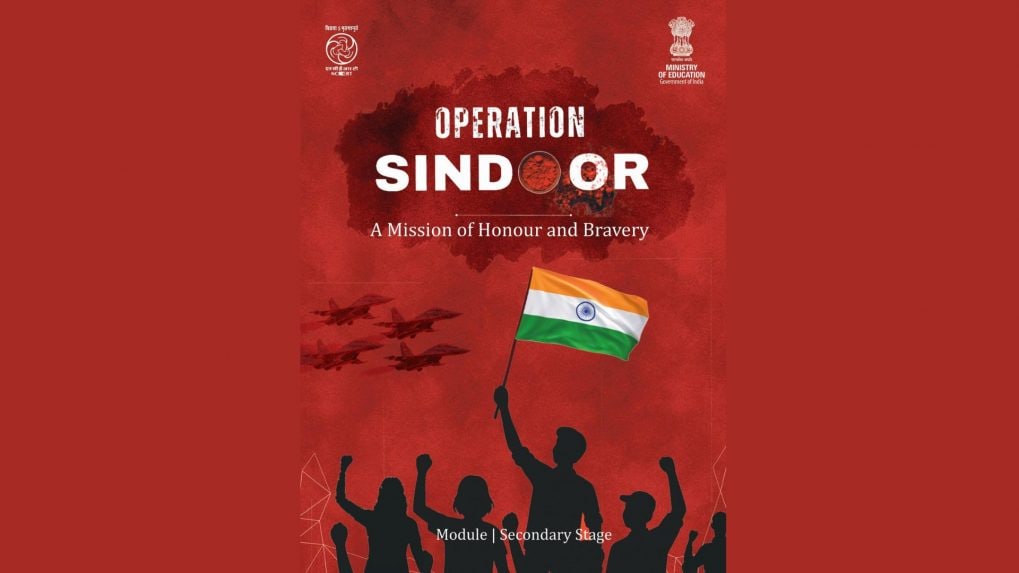How it Works
WPP, Havas, Omnicom: Are advertising’s biggest holdcos recasting agencies as AI Operating Systems?

The National Council of Educational Research and Training (NCERT) has introduced a new learning module on Operation Sindoor, describing it as "a military success, a technological breakthrough, and a political message combined," as per media reports.
The content, developed as supplementary material for students of Classes 3 to 12, aims to provide a detailed understanding of recent national security developments beyond regular textbooks.
Background to the Operation
The module traces its roots to the Pahalgam terror attack of April 2025, in which 26 tourists were killed. According to the NCERT material, the attack was "directly ordered by Pakistan's military and political leadership" and executed by Lashkar-e-Taiba operatives under the guidance of Pakistan's Inter-Services Intelligence (ISI).
While the militant group The Resistance Front (TRF) initially claimed responsibility, India's National Investigation Agency (NIA) later confirmed TRF's role using evidence and eyewitness accounts.
The Pahalgam attack, the document notes, was intended to derail progress in Jammu and Kashmir following the 2019 abrogation of Article 370, which had paved the way for upgraded schools, improved infrastructure, direct rail connectivity, and record tourism numbers by 2023.
Operation Sindoor - India's Response
In retaliation, India launched Operation Sindoor, a coordinated military action by the Indian Air Force that targeted nine key terror-linked sites inside Pakistan. The targets reportedly included command centres, radars, surface-to-air missile systems, runways, and aircraft hangars.
The module highlights that the strikes were carried out with precision to avoid civilian casualties while demonstrating India’s growing reliance on indigenously developed defence technologies such as the S-400, Akash, MRSAM, Pechora, and OSA-AK platforms.
Escalation Along the Border
In the aftermath, Pakistan resorted to repeated ceasefire violations along the Line of Control (LoC), targeting both military and civilian areas, including schools and religious sites. These attacks led to the deaths of 14 Indian civilians. The Indian Army responded, neutralising an estimated 35-40 Pakistani soldiers, according to the document.
On May 10, Pakistan launched fresh attacks on Indian Air Force bases and cantonments. However, the NCERT notes that “no critical Indian asset was damaged.”
In response, the Indian Navy deployed its Carrier Battle Group, equipped with MiG-29K fighter jets and advanced surveillance systems, in the North Arabian Sea to safeguard India’s maritime interests and deter further escalation.
Linking Past and Present
To give students a broader perspective, the module also revisits the 2019 Pulwama attack and subsequent Balakot air strikes, drawing parallels to Operation Sindoor and emphasising continuity in India’s counter-terror policy.
The narrative underscores how such operations are tied to larger national security strategies and the evolving role of self-reliance in defence manufacturing.
Wider Implications
According to the NCERT, Operation Sindoor was more than a tactical strike. It represented a military, diplomatic, and psychological victory, bolstering public morale, reaffirming trust in the armed forces, and signalling to the global community that India is committed to protecting its sovereignty.
From purpose-driven work and narrative-rich brand films to AI-enabled ideas and creator-led collaborations, the awards reflect the full spectrum of modern creativity.
Read MoreThe Storyboard18 Awards for Creativity have unveiled a Grand Jury comprising some of India’s most influential leaders across advertising, business, policy and culture, positioning it among the country’s most prestigious creative award platforms.